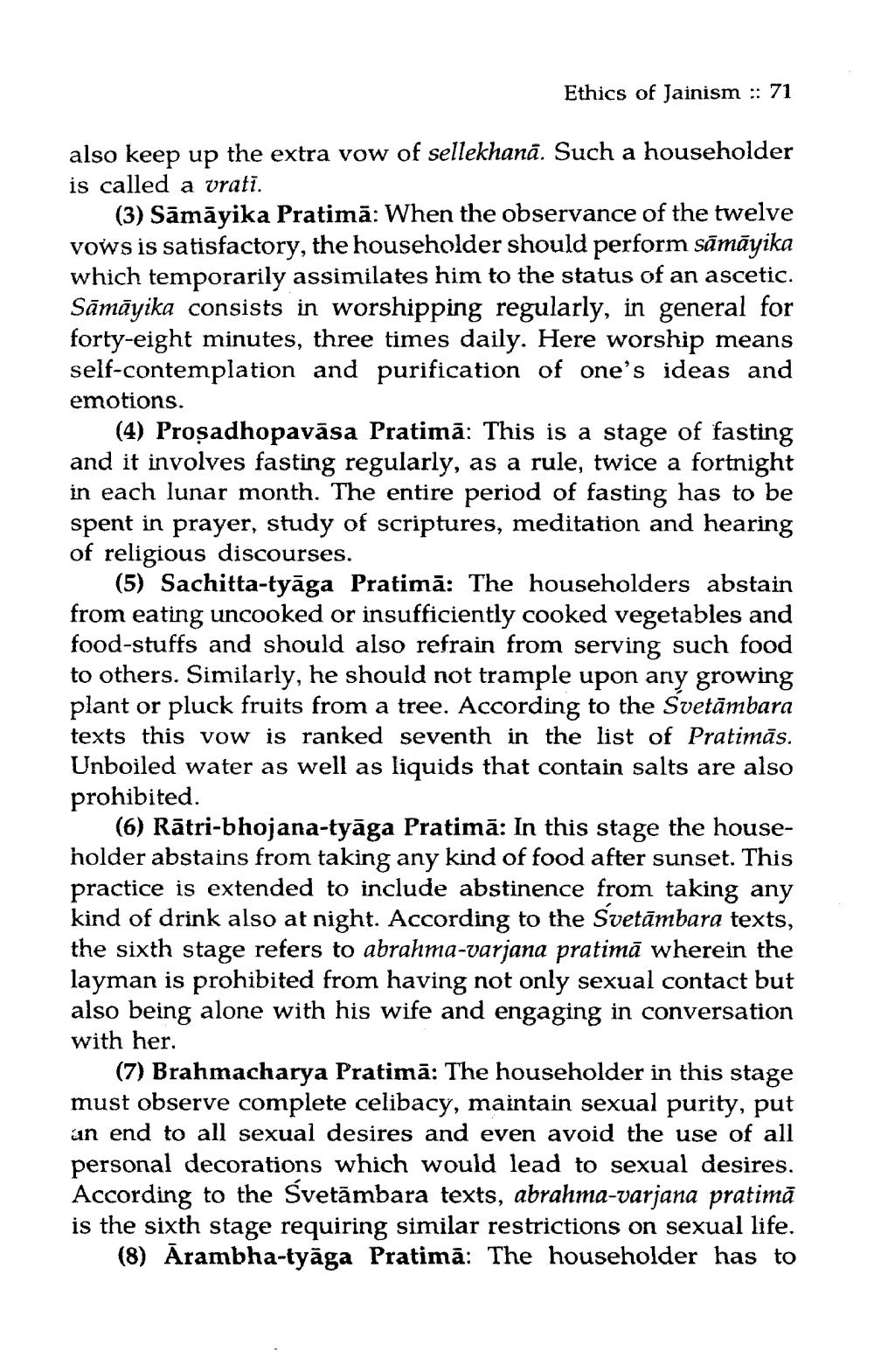________________
Ethics of Jainism :: 71
also keep up the extra vow of sellekhanā. Such a householder is called a vrati.
(3) Sāmāyika Pratimā: When the observance of the twelve vows is satisfactory, the householder should perform sāmāyika which temporarily assimilates him to the status of an ascetic. Sāmāyika consists in worshipping regularly, in general for forty-eight minutes, three times daily. Here worship means self-contemplation and purification of one's ideas and emotions.
(4) Proşadhopavāsa Pratimā: This is a stage of fasting and it involves fasting regularly, as a rule, twice a fortnight in each lunar month. The entire period of fasting has to be spent in prayer, study of scriptures, meditation and hearing of religious discourses.
(5) Sachitta-tyāga Pratimā: The householders abstain from eating uncooked or insufficiently cooked vegetables and food-stuffs and should also refrain from serving such food to others. Similarly, he should not trample upon any growing plant or pluck fruits from a tree. According to the Svetămbara texts this vow is ranked seventh in the list of Pratimās. Unboiled water as well as liquids that contain salts are also prohibited.
(6) Rātri-bhojana-tyāga Pratimā: In this stage the householder abstains from taking any kind of food after sunset. This practice is extended to include abstinence from taking any kind of drink also at night. According to the Svetāmbara texts, the sixth stage refers to abrahma-varjana pratimā wherein the layman is prohibited from having not only sexual contact but also being alone with his wife and engaging in conversation with her
(7) Brahmacharya Pratimā: The householder in this stage must observe complete celibacy, maintain sexual purity, put un end to all sexual desires and even avoid the use of all personal decorations which would lead to sexual desires. According to the Svetāmbara texts, abrahma-varjana pratimā is the sixth stage requiring similar restrictions on sexual life.
(8) Ārambha-tyāga Pratimā: The householder has to




